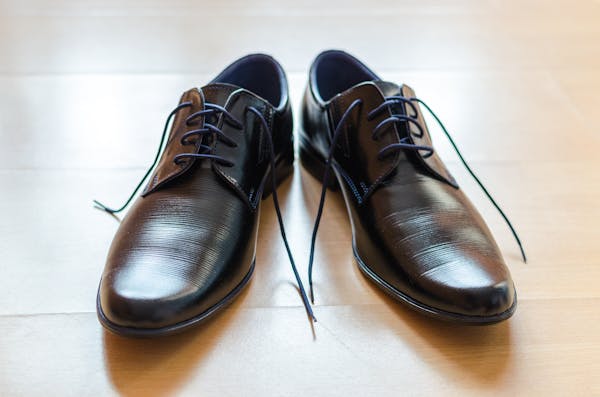If you took a walk through a high school or college, the first thing you would see wouldn’t be students interacting or speaking with one another. Instead, you would see most students hunched over a screen as they walk to class. But that doesn’t mean that they aren’t interacting with each other. Unbeknownst to you, those students are in fact chatting with one another and liking or commenting on each other’s posts. Sure, they may not see each other’s face in this type of interaction, but their opinions are heard just as much, if not more.
Social Media Relieves Stress
Social media platforms, or apps on which users can share posts of any kind are commonly used by people to relieve stress. It is much easier swipe through ten posts than it is to work through ten difficult math problems. When worrying things occur in students’ lives, ranging from school-related issues to family problems, social media provides an escape. It allows students to assume an online identity and often only portrays the highlight reel of a person’s life, omitting the difficult parts. This is becoming less and less true, however, as more people turn to social media to share their struggles. Sharing about issues like mental health also allows people to vent and release their emotions without participating in anything reckless or destructive.
Social Media and Popularization of Movements
Social media is also used to spread and popularize concepts or movements. For example, the current Black Lives Matter movement is gaining lots of momentum on social media platforms like Instagram, where many users post their opinions supporting the movement. In this way, social media gives voices to bigger causes, and allows these causes to grow even bigger by exposing it to more and more people.
Social Media as News
Another way social media is used is as a news source. Most students aren’t reading newspaper or watching the news on a regular basis. Social media makes up for that, because somebody who has seen the news will post about it. In that way, information trickles down through everybody who views that post. The importance of this is beautifully illustrated in today’s situation. Most students get their updates on the pandemic and on the protests regarding Black Lives Matter on social media. For many, it is their only source of information.
Social Media and Misinformation
Social media is not all good, though. Just as news and movements can be spread through social media platforms, false information can also spread. This is again, well-illustrated in today’s situation. Many people have misconceptions about the pandemic and how far-reaching it is because social media allows false information to spread very easily. There are entities to prevent the posting of false information on social media platforms. Most of these are artificial intelligent bots, and they are more often than not, ineffective.
Social Media and Cyber-Bullying
Another concern that arises with social media use is cyber-bullying. This is bullying that takes place through posting defaming information about someone else, or commenting defaming information on another’s post. Sometimes cyber-bullying can be even more detrimental than in-person bullying, and bullies often work under false names, making it difficult to identify them and stop the problem. This cyber-bullying can increase stress in students, and severely impact their mental health. Unfortunately, although there are entities to prevent this, they are pretty ineffective.
Social media is also said to not include authentic interactions between users. When you chat on social media with another user, you can’t see their expression or hear the tone in their voice. This raises many concerns and a major one is that students are less prepared for in-person communication because of their reliance on social media.
Rise of Social Media

In this time of uncertainty, when most people cannot see their friends as much as they used to, social media is the only way people can interact and communicate. Many people are also relying on it for their news, and so they can release tension and stress during this pandemic. While there are many downsides, such as misinformation, cyber-bullying, and inauthentic interactions, social media still plays a huge role in people’s lives, and in today’s world, this role is an invaluable one.
Works Cited
Christensen, Jen. “Social media rules. That’s bad in a pandemic.” CNN, 15 May 2020, http://www.cnn.com/2020/05/15/health/social-media-negative-impact-covid/index.html. Accessed 7 June 2020.
Fischer, Sara. “Social media use spikes during pandemic.” Axios, Axios Media, 24 Apr. 2020, http://www.axios.com/social-media-overuse-spikes-in-coronavirus-pandemic-764b384d-a0ee-4787-bd19-7e7297f6d6ec.html. Accessed 7 June 2020.
Iwai, Yoshika. “Harnessing Social Media for the COVID-19 Pandemic.” Scientific American, 7 Apr. 2020, blogs.scientificamerican.com/observations/harnessing-social-media-for-the-covid-19-pandemic/. Accessed 7 June 2020.
Pazzanese, Christina. “Battling the ‘pandemic of misinformation.’” The Harvard Gazette, Harvard Gazette, 8 May 2020, news.harvard.edu/gazette/story/2020/05/social-media-used-to-spread-create-covid-19-falsehoods/. Accessed 7 June 2020.
Wallace, Kelly. “The upside of selfies: Social media isn’t all bad for kids.” CNN, 7 Oct. 2014, http://www.cnn.com/2013/11/21/living/social-media-positives-teens-parents/index.html. Accessed 7 June 2020.
Check out these popular articles 🙂
Circulatory System: Blood Flow Pathway Through the Heart
Ectoderm vs Endoderm vs Mesoderm
Circulatory System: Heart Structures and Functions
Ductus Arteriosus Vs Ductus Venosus Vs Foramen Ovale: Fetal Heart Circulation
Cardiac Arrhythmias: Definition, Types, Symptoms, and Prevention
Upper Vs Lower Respiratory System: Upper vs Lower Respiratory Tract Infections
Seven General Functions of the Respiratory System
Digestive System Anatomy: Diagram, Organs, Structures, and Functions
Kidney Embryology & Development: Easy Lesson
Autocrine vs Paracrine vs Endocrine: What are the Differences?
Their Eyes Were Watching God: Mule Symbol
Shoulder Abduction Muscles: Medical Anatomy and USMLE
Cell Membrane Dynamics: Flippase vs Floppase vs Scramblase
Cell Membrane Fluidity: Factors That Influence and Increase the Cell Membrane Fluidity
Psychology 101: Crowd Psychology and The Theory of Gustave Le Bon
Introduction to Evolution: Charles Darwin and Alfred Russel Wallace
An Overview of Shorthand: History and Types of Shorthand
Calculus: Two Important Theorems – The Squeeze Theorem and Intermediate Value Theorem
Copyright © 2022 Moosmosis Organization: All Rights Reserved
All rights reserved. This essay first published on moosmosis.org or any portion thereof may not be reproduced or used in any manner whatsoever
without the express written permission of the publisher at moosmosis.org.

Please Like and Subscribe to our Email List at moosmosis.org, Facebook, Twitter, Youtube o support our open-access youth education initiatives! 🙂
Categories: Biology, health, History, humanities, Literature, politics, psychology, Social Studies







